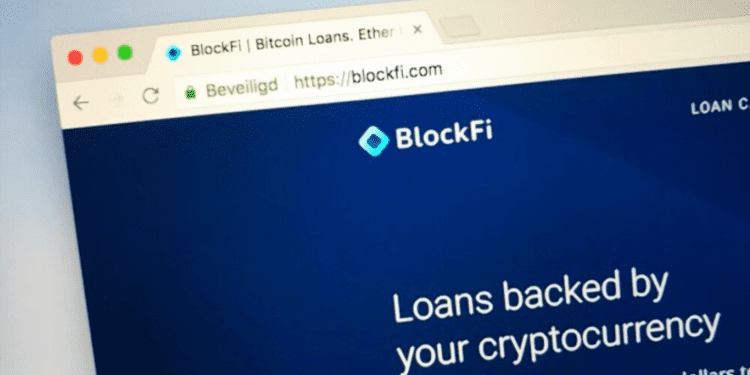Crypto lender BlockFi is among the victims of the troubled FTX saga. On November 11, the lender said that “business as usual” was no longer possible, citing a lack of clarity surrounding FTX, FTX.US, and Alameda Research as the basis for the situation.
“Given the lack of clarity on the status of FTX.com, FTX US, and Alameda, we cannot operate business as usual.”
BlockFi is the latest addition to the list of companies affected by one of the harshest crypto weeks in history, which, coupled with the prevailing bear market, is hanging by a thread. The exchange moved to restrict operations, including withdrawals, until clarity is achieved. BlockFi also recommended that customers avoid making deposits.
“Until clarity, we limit platform activity, including pausing client withdrawals as allowed under our Terms. We will share more specifics as soon as possible. We request that clients not deposit to BlockFi Wallet or Interest Accounts at this time.”
BlockFi Suffers in the Wake of FTX’s Demise.
The situation at play follows what seems to be FTX’s demise causing BlockFi to suspend client withdrawals from its platform as part of a more expansive restriction on platform offerings. The suspension follows a November 8 Twitter announcement by BlockFi founder and chief operating officer Flori Marquez that the company’s products were fully operational.
“There’s a lot of action in the crypto markets today – something we have seen before and are used to managing. Deposits, withdrawals, trading, and lending are all up and running….”
Marquez also declared BlockFi’s association with FTX exchange but assured users of the company’s independence, saying:
“@BlockFi is an independent business entity. We have a $400M line of credit from http://FTX.US (not http://FTX.com) and will remain independent until at least July 2023.”
BlockFi’s Exposure to FTX
From the post, it is clear that BlockFi has a $400 million line of credit from FTX US, a different firm from the liquidity-crunch-tagged FTX. This follows a July 2021 announcement about the signed agreement between BlockFi and FTX US for the latter to issue BlockFi a $400 million credit facility.
According to the terms of the credit facility, FTX US would be able to buy BlockFi at an acquisition price determined by surrounding factors, including BlockFi’s approval by the U.S Securities and Exchange Commission (SEC) to establish a revenue-generating service in the U.S.
The business was also required to have attained a minimum of $10 billion worth of client assets by the time FTX US actualized its option. Meeting these conditions would give FTX US permission to invest as much as $240 million in the acquisition of BlockFi. However, failure to meet the above terms would see the lender sold for as little as $15 million.
Following recent discoveries about FTX, however, the deal appears inconsequential given that the downtrodden company with a $10 billion hole in its financial books is affiliated with FTX US. BlockFi going back on its assurance to users that crypto transactions would run as usual, including withdrawals, has sparked concerns among customers who have reacted negatively to the language shift. Citing Twitter user @realMeetKevin:
“This is why trusting institutions is tough…Sam Bankman-Fried says everything is fine, now going bankrupt.”
In August 2022, BlockFi was recognized as the most promising privately held company in terms of growth in the U.S. Barely three months have passed, and the company appears to be as vulnerable as the rest amid the crypto winter.
Recent news on BlockFi’s calamity underscores the growing concern about the incident involving FTX and Alameda Research, both owned by Sam Bankman-Fried (SBF). By 2022, a decline in virtual coins had already shaken digital asset lenders like BlockFi and the ill-fated Celsius Network. Credible pundits in the crypto market argue that the FTX situation will have far more casualties on the crypto playing field than the Terra LUNA debacle.
FTX US general counsel Ryne Miller has already told company staff to assemble work-related records in readiness for expected subpoenas or other related investigations pending litigation. Similarly, Senate Banking Committee Senator Sherrod Brown (D-Ohio) has also commissioned financial watchdogs to look into the FTX saga.
While SBF’s stock continues to plummet, the U.S Parliament continues with the bill he supported, including one detailing the need to increase oversight in the crypto industry, with a particular interest in the decentralized finance (DeFi) sector.
Noteworthy, Bahamas law enforcement has already frozen the assets of FTX’s local trading company and “related parties” in the Bahamas, where the company is headquartered, further adding to speculations of SBF’s downfall. The latest development is that FTX has filed for chapter 6 bankruptcy protection as Sam Bankman-Fried resigns as CEO.














